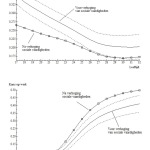Kim Verbrugghe – The Rise Of Our Shadow Cities – Innovation In The Slums
No comments yetchrysalis.deepend.com. August 2, 2013. In Mesopotamia, the Nile would go out of its boundaries and kilometres of land would be swiped away with water. There were long periods of draught and the water of the Nile would leave fertile sediment on the fields. About 1800 BCE, the Egyptians used a natural lake as a reservoir during dry periods. They also invented ‘flood irrigation’ and used the flooding of the Nile to distribute the water via channels across fields.
I recently listened to a TED talk about the future of our cities. Scientists believe that our future cities won’t be the metropoles we have today but the micro communities that have established themselves over the course of the years. We see these translated in similar ways across the world. The slums in India. Favelas in South America.
Cities present the best hope for a sustainable future. Family size and carbon footprint fall as density rises. You can see this best in the areas where urbanisation happens most rapidly: the slums. The working slums help create prosperity. They are valuable as a group.
Read more: http://chrysalis.deepend.com.au/the-rise-of-our-shadow-cities-innovation
You May Also Like
Comments
Leave a Reply






